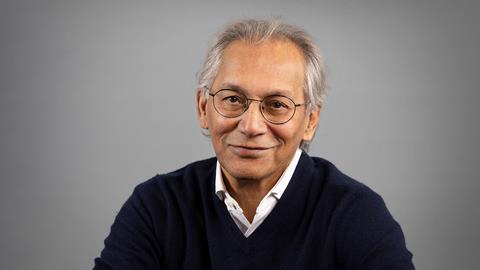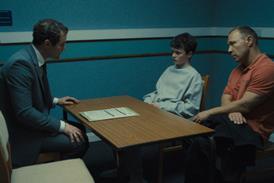Relatively positive year of growth for broadcaster amid litany of high-profile controversies
The BBC grew revenues by nearly 10% in a better financial performance than expected, according to its annual report.
Its fiscal improvement was coupled with a record reach on digital viewing, with over a quarter more hours spent viewing on iPlayer.
Today’s publication tells a positive story for the broadcaster following weeks of controversy and yesterday’s release of the long-awaited Gaza: How To Survive a War Zone report and the Gregg Wallace investigation.
Notable in its financial results was a rise of group revenues to £5.9bn in 2024/25, up from £5.4bn in 2023/24. The near-10% year-on-year growth was attributed to a combination of licence fee income, grant income and record returns from its commercial activities, including BBC Studios, which hit £2.2bn in revenues.
Licence fee income increased for the first time in three years, up from £3.7bn to £3.8bn. This was driven by the 6.7% inflationary increase to the licence fee to £169.50. Though the BBC noted the “vast majority” of audiences are still willing to pay the fee, there were 23.8m licences in force at the end of the year, down from 24.1m in 2023/24.
Additionally, the BBC halved its group operating deficit by nearly 50%, from £263m to £132m, reflecting the growth of commercial operations. It delivered a deficit after tax of £112m, £380m below the £492m forecast in the 2024 annual plan.
Overall, the BBC upped its content spend by 4% to reach £3.1bn (up from £2.97bn). It said this was driven by major sports events – with sports production spend increasing 37% to £92m – and commercial growth.
Drama was also a notable genre beneficiary with spend up 5% year-on-year to reach £411m (2023/24: £391m). However, both factual and entertainment and comedy saw 7% reductions in spend to reach £251m and £224m respectively. Earlier this year, the BBC annual plan warned that content spend would drop almost £150m in 2025/26.

The BBC also spent slightly more of its budget in the nations and regions in 2024/25, rising from 60% the previous year to 61%.
Digital growth
The corporation achieved nearly 10% more iPlayer requests (streams) year on year, rising from 8.1bn in 2023/24 to 8.9bn in 2024/25, which helped contribute to 24% increase in hours viewed on the platform year-on-year, up 883m to hit 4.5bn.
It was also a record year for the number of weekly active accounts, rising nearly 8% from 14.1m the previous year to 15.2m, beating the target of 14m. This rise helped make the platform the UK’s fastest-growing long-form video-on-demand service, according to the report.
“With changes in audience viewing behaviours continuing to accelerate, we are adapting to the demands of our audiences in the digital age…Innovation across our digital estate remains a key area of focus, and technology is helping drive a step-change in the accessibility of our content,” said chief operating officer Leigh Tavaziva in the report.
Meanwhile, BBC Sounds grew to just over 8% year on year from 2.4bn to 2.6bn plays, hitting its target of 4.8m weekly active accounts.
A BBC spokesperson also offered an update on the “biggest ever” public engagement exercise which was announced in March last year, when Tim Davie said he was aiming for 1m members of the public to help drive decisions about the future of the broadcaster.
The BBC has so far received 870,000 responses, and the spokesperson told Broadcast the account-holder survey will close in the coming days. The BBC will conduct more audience research this year and next year, they added.

Chair Samir Shah said: “This year has shown that the BBC and the public service values it stands for are more important than ever to our audiences and the UK as a whole.
“As we look towards charter review, the board and I are determined to work on behalf of audiences to secure an independent, universal public service BBC for generations to come.”
Davie added: “I am proud of the outstanding value we have delivered for audiences this year and the speed at which we are transforming the organisation to meet the challenges of a fast-changing media landscape.
“This report demonstrates the importance of the BBC and the vital role we play in helping to strengthen the UK’s democracy, economy, and society, now and in the years to come.”






























No comments yet